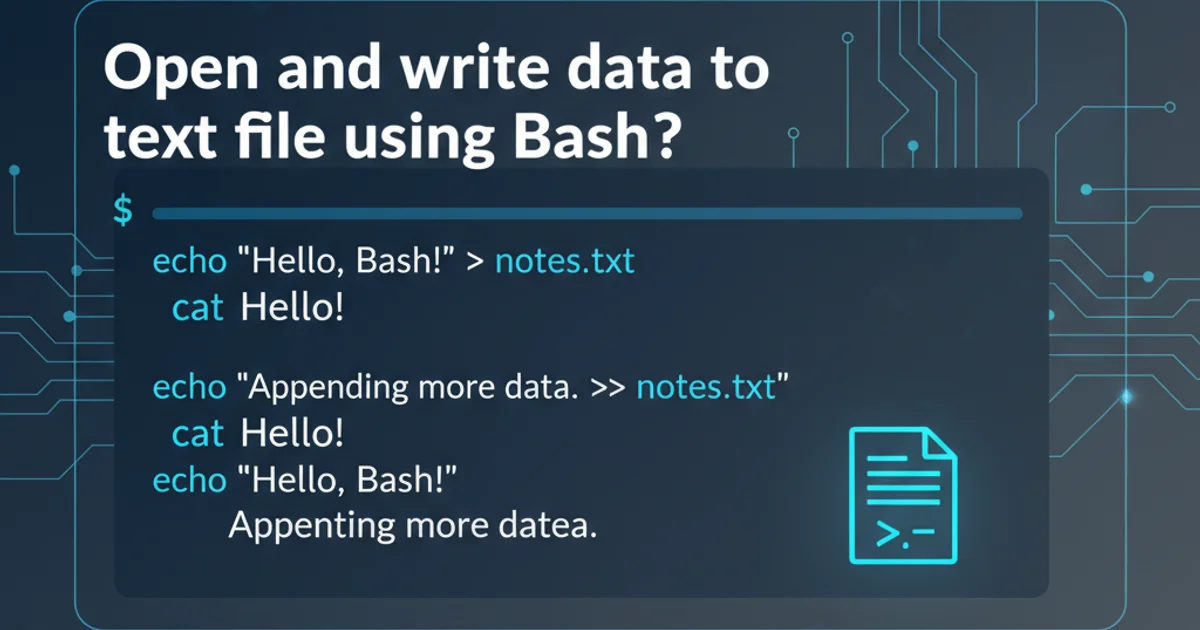Is there a printf converter to print in binary format?
Categories:
Printing Binary: Custom Solutions for C's printf

Explore how to print numbers in binary format using C, as the standard printf function lacks a direct specifier for this. This article covers custom functions, bitwise operations, and practical implementations.
The printf function in C is a powerful and versatile tool for formatted output. It supports various data types and formats, including decimal (%d), hexadecimal (%x), and octal (%o). However, a common question among C programmers is how to print a number directly in its binary representation. Unfortunately, printf does not provide a built-in format specifier for binary output. This article will guide you through creating your own solutions to achieve binary printing in C.
Why No Binary Specifier?
The absence of a direct binary specifier in printf is primarily due to historical reasons and the typical use cases for formatted output. While hexadecimal and octal representations are compact and frequently used in low-level programming (e.g., memory addresses, bitmasks), binary representations can be very long and are less commonly needed for direct human readability in general-purpose output. However, understanding and manipulating binary is crucial for many programming tasks, especially in embedded systems, networking, and bitwise operations.
flowchart TD
A[Start] --> B{Need Binary Output?}
B -->|No| C[Use %d, %x, %o]
B -->|Yes| D[Custom Function Required]
D --> E{Determine Integer Size}
E --> F[Iterate from MSB to LSB]
F --> G[Use Bitwise AND (&) and Right Shift (>>)]
G --> H{Print '1' or '0'}
H --> I[End]Decision flow for printing binary numbers in C
Implementing a Custom Binary Print Function
Since printf doesn't offer a direct solution, the most common approach is to write a custom function. This function will typically take an integer as input and iterate through its bits, printing '1' or '0' for each bit. The core idea involves using bitwise operators: the right-shift operator (>>) to move each bit to the least significant position, and the bitwise AND operator (&) with 1 to check if the bit is set.
#include <stdio.h>
#include <limits.h>
void printBinary(unsigned int n) {
// Determine the number of bits for the unsigned int type
int num_bits = sizeof(unsigned int) * CHAR_BIT;
int i;
// Flag to track if leading zeros should be printed
// This ensures that numbers like 5 (0...0101) don't print as just 101
int leading_zero_flag = 0;
for (i = num_bits - 1; i >= 0; i--) {
// Check the i-th bit from MSB to LSB
if ((n >> i) & 1) {
printf("1");
leading_zero_flag = 1; // Once a '1' is printed, start printing all subsequent bits
} else {
if (leading_zero_flag) {
printf("0");
}
}
}
if (!leading_zero_flag) { // Handle the case where n is 0
printf("0");
}
printf("\n");
}
int main() {
printf("Binary representation of 10: ");
printBinary(10);
printf("Binary representation of 255: ");
printBinary(255);
printf("Binary representation of 0: ");
printBinary(0);
printf("Binary representation of 1: ");
printBinary(1);
printf("Binary representation of 4294967295 (unsigned int max): ");
printBinary(4294967295U);
return 0;
}
A custom C function to print an unsigned integer in binary format, handling leading zeros.
CHAR_BIT macro from <limits.h> provides the number of bits in a byte, which is typically 8. Using sizeof(unsigned int) * CHAR_BIT ensures your function is portable across systems with different byte sizes.Alternative: Using a Buffer and Reversing
Another approach involves building the binary string in a character array (buffer) and then reversing it. This can be useful if you need the binary string for further manipulation or if you prefer to construct the string before printing. This method typically extracts bits from LSB to MSB and then reverses the resulting string.
#include <stdio.h>
#include <string.h>
#include <stdlib.h>
// Function to reverse a string
void reverseString(char* str) {
int length = strlen(str);
int i, j;
char temp;
for (i = 0, j = length - 1; i < j; i++, j--) {
temp = str[i];
str[i] = str[j];
str[j] = temp;
}
}
void printBinaryBuffered(unsigned int n) {
char buffer[sizeof(unsigned int) * CHAR_BIT + 1]; // +1 for null terminator
int i = 0;
if (n == 0) {
printf("0\n");
return;
}
while (n > 0) {
buffer[i++] = (n % 2) + '0'; // Get the last bit and convert to char '0' or '1'
n = n / 2; // Right shift by dividing by 2
}
buffer[i] = '\0'; // Null-terminate the string
reverseString(buffer);
printf("%s\n", buffer);
}
int main() {
printf("Binary representation of 10 (buffered): ");
printBinaryBuffered(10);
printf("Binary representation of 255 (buffered): ");
printBinaryBuffered(255);
printf("Binary representation of 0 (buffered): ");
printBinaryBuffered(0);
return 0;
}
A custom C function that builds the binary string in a buffer and then reverses it.
unsigned int, sizeof(unsigned int) * CHAR_BIT + 1 is a safe size.